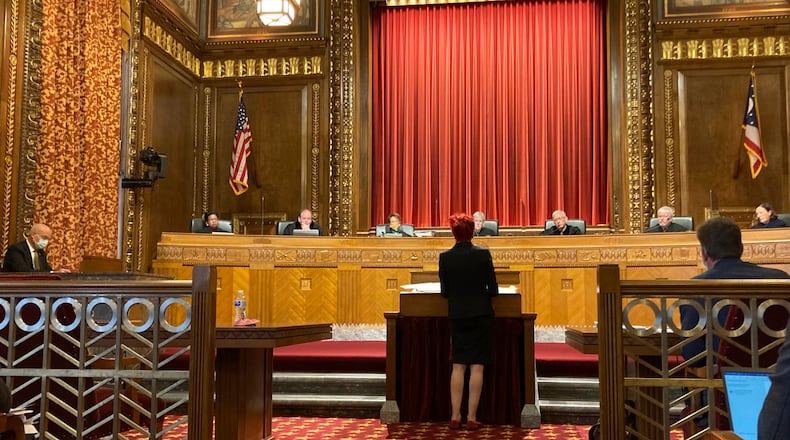Outgoing Chief Justice Maureen O’Connor formed the task force in February 2020. It was chaired by Judge Gene Zmuda, who sits on the Sixth District Court of Appeals and is an adjunct professor at the University of Toledo.
“Innocent until proven guilty is a foundational cornerstone of our American justice system,” Zmuda said in a news release. “The recommended improvements reduce the possibility of wrongful convictions and ensure convictions are reliable.”
The task force made recommendations in three general categories.
First, it recommends changing Ohio law to allow new trials based on some types of new evidence, without a time limit; extending time for the discovery process for defendants who haven’t been sentenced to death; and making it easier for the convicted to successfully file petitions for relief.
Second, it recommends the judicial system collect more data on felony appeals and post-conviction proceedings; require specific training for lawyers doing post-conviction relief work; raise prosecutors’ standards for a conviction, and require that a prosecutor who knows evidence of innocence to actively seek to overturn a wrongful conviction.
Third, it proposes creation of independent statewide Innocence Inquiry Commission, modeled on North Carolina’s, with investigatory and subpoena powers.
“At the outset, the Task Force sought to be inclusive, but nearly all county prosecutors declined to participate in any meetings, discussions, or recommendations,” the report says.
In an August 2020 news release the Ohio Prosecuting Attorney’s Association said it would limit involvement to submitting “best practices for conviction review” and a proposed rule change for prosecutors’ ethics.
About the Author

